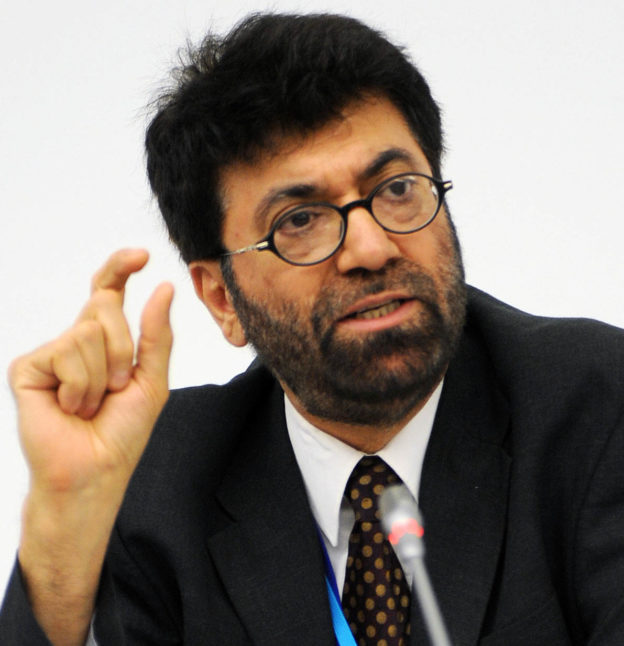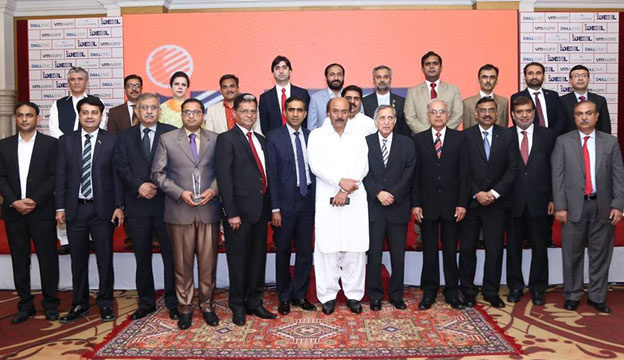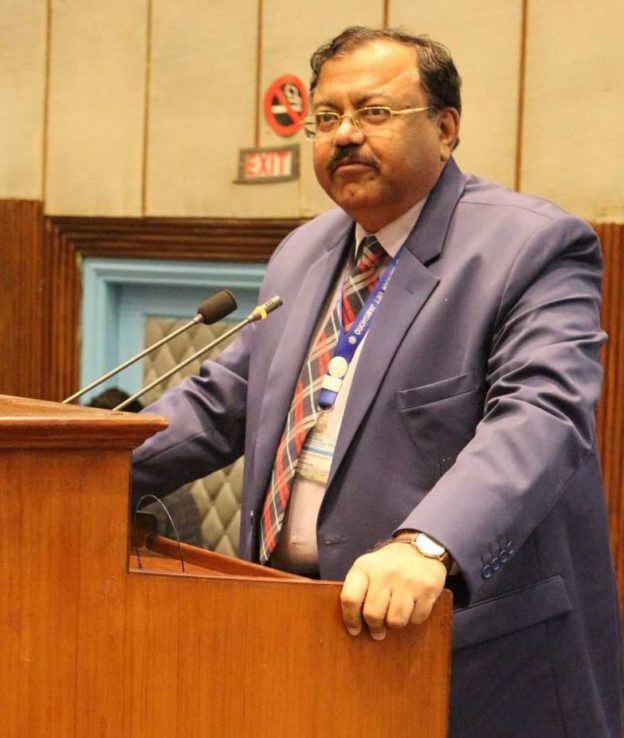Ideal Autonetics organizes workshop, Awards luminaries
Under Corporate Social Responsibility, Ideal Autonetics organized a one day workshop on “Modern IT Infrastructure in Academia” on 14th March, 2018 at Movenpick Hotel, Karachi with the support and collaboration of Higher Education Commission (HEC), Dell EMC, Mindware and VMWARE.
Speakers from the world leading IT solution providing companies delivered keynote speeches. Ideal Excellency Awards were also presented to various academicians and IT professionals. Prof. Dr. S. M. Qureshi was honored with Living Legend Award.
Nisar Ahmed Khuhro, Senior Minister and also minister for ‘Food and Parliamentary Affairs’ was the Chief Guest of the event. Celebrity of Nation Awards were presented to M. Ajmal Khan (VC, Karachi University),
Prof. Dr. Manzoor Hussain Soomro (Founder President, ECO Science Foundation), Dr. Saifuddin Junejo (Collector, Model Customs, Port Qasim), Dr. Syed M. Tariq (Founding VC, Jinnah Sindh Medical University, Karachi), Brig. (R) Engr. Muhammad Amin (VC, Balochistan University of Engineering & Technology, Khuzdar) Dr. Abdul Qadeer (Chairman, Charter Inspection and Evaluation Committee, HEC, Sindh), Dr. Fateh M. Burfat (VC, Sindh University, Jamshoro), Prof. Dr. Aslam Uqaili (VC, Mehran University, Jamshoro), Prf. Bikha Ram Devrajani (VC, Liaqat University of Medical & Health Sciences, Jamshoro), Dr. Mujeeb-u-ddin (VC, SAU, Tado Jam), Dr. B.S Chawdhry (Dean Electrical, Electronics & Computer Engineering, MUE&T), Pro. Dr. Amanullah Abbasi (Registrar & Professor, Dow University of Health Sciences) and Prof. Dr. Iftikhar Hussain (VC, UE&T, Peshawar). Sajeel Khaled, from Dell EMC spoke on ‘Modern Infrastructure Technology & its Benefits, Syed Waqar uddin Solution Architect from VMWARE delivered a heart touching presentation on “Software driven Infrastructure in Modern IT World” and Pireh Pirzada CTO of Ideal Autonetics (Pvt) Limited, spoke on “Automation & e-Governance in Public Sector”.
Hall of fame awards were presented to Prof. Dr. Bashir Ahmed (Dean, QUEST, Nawabshah) , Dr. Faisal Ahmed (Dean, BUITEMS, Quetta), Prf. Dr. Muhammad Akram Shaikh (DG, PS&TIC), Prof. Dr. Syed Asif Ali (Dean, IT, SMI, University, Karachi), Prof. Muhammad Tufail (Pro VC, NED University, Karachi, Dr. Waqar (IT Chair, Director, KICS, UET, Lahore), Dr. M. Sadiq Ali (Chairman, CS Dept. KU), Dr. Abdul Shakoor (UET, Peshawar), Prof. Dr. Ab Rehman, Faisal Riaz, Engr. Javed Ali, Imran Batada and Ayaz Ahmed.
The goal of organizing workshop was to create strong linkages between academia and industry, increase awareness regarding modern technologies. And the objective of presenting Ideal Excellence Awards to the distinguished persons was to recognize their contribution, efforts rendered for the betterment in relevant fields. Encourage and promote deserving professionals and their parental organizations in their respective field of excellence and get a great recognition and a position of their stature. The Ideal Excellence awards will surely help in moral boosting and more inspiration to the winners and their colleagues.
As many as 21 universities of the country participated in the event. Various Vice Chancellors, Pro-Vice Chancellors, Registrars, Deans and IT professional from all over the country were present at the workshop.The Presenters spoke on innovation transitioning from academia to industry, a subject of vital importance in a developing country like Pakistan as geospatial technology and diversified industries. And provided information on how new demands for geospatial-enabled solutions are continuously emerging and creating business opportunities. With the right strategy, entrepreneurial approach with scalable innovations will enable to prosper in this fast-transforming world of technology.
Ideal Autonetics has been in the IT business since 1996 and has been proudly serving many satisfied customers, providing IT solutions to Enterprise customers from Financial and Commercial sectors. It operates in Karachi, Lahore and Islamabad. Ideal Autonetics (Private) Limited runs a software-house, provides consultations, providesdata centers solutions, disaster recovery sites, networking and surveillance solutions. It has affiliation with world leading IT Solution providing companies such as Dell EMC, VMWARE, and Microsoft.










